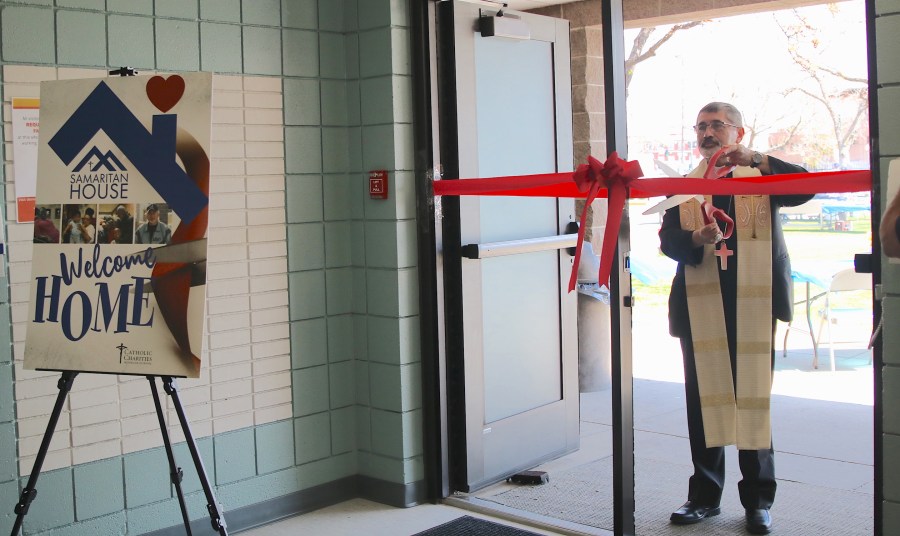DENVER (KDVR) — A Denver shelter system has expanded its facilities to serve more families who need a place to stay.
Samaritan House, a shelter system operated through the Archdiocese of Denver’s Catholic Charities, celebrated a ribbon-cutting Friday for the facility’s multiyear renovation project. The organization said its renovation project focuses on better serving single women, families and veterans without shelter.
“We just want them to feel like this is a home to them,” said Mike Sinnett, vice president of shelters and community outreach for Catholic Charities, in a press release announcing the upgrades.

Sinnett said the organization decided on renovations based on guest feedback.
The shelter will serve more families now that it’s increased the number of rooms on its family floor from 21 to 25, said Nissa LaPoint, a Catholic Charities spokesperson.
Other upgrades include new bunk beds with power outlets and reading lights, new lockers and mattresses, freshly painted walls and new furniture. The facility also upgraded its air-conditioning system and bathroom facilities and added new offices for on-site services.
Samaritan House said the demand for shelter food and services “has multiplied” because of the pandemic. The organization provides 850 beds each night and expects further expansion this year.
LaPoint said Catholic Charities is able to to serve up to 275 women through its shelter program. Because of distancing requirements, women are spread through three of their facilities.
According to the most recent count of Colorado’s homeless population, at least 19% of people experiencing homeless in 2020 were families with children. The annual counts are considered an underestimate, and the most recent data was measured before the pandemic exacerbated burdens that can lead to housing instability.
